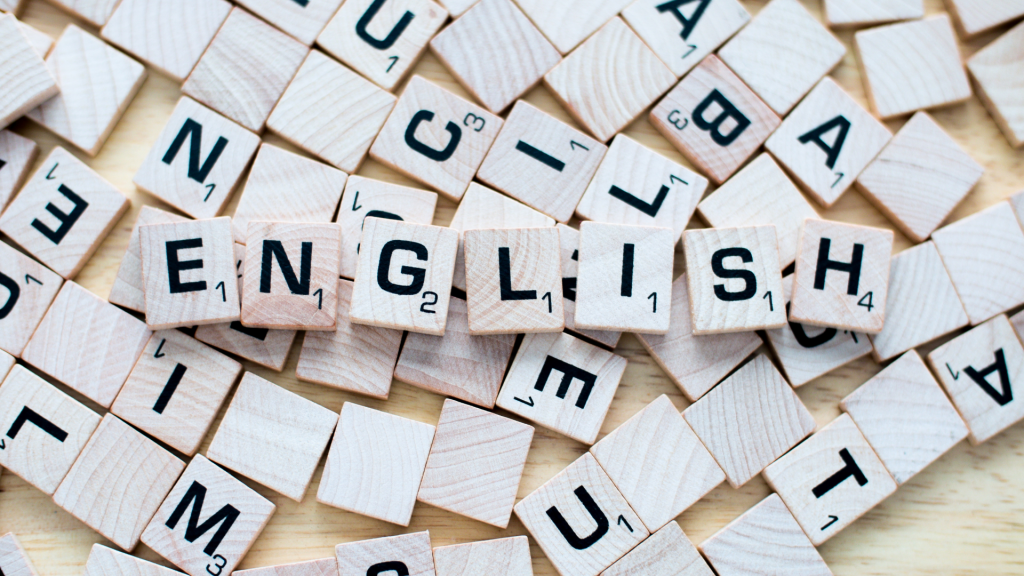These delightful words from Middle English have found ways to smuggle themselves through the centuries to stay part of our lexicon of modern life
English has become the universal language of the world for a couple of reasons. The first is how widespread it has become and who speaks it.
That’s because one of the English colonies back in the age of empire became the USA, a superpower of the modern age and, crucially, a global cultural influencer.
Much to the chagrin of the French, the language of business is English, the language of culture is English, the language of innovation is English.
The second reason (and this one is free of political baggage) is that English is such a flexible language, capable of absorbing foreign words and adapting them to its needs, such as the naming new concepts and ideas.
This is because the language has absorbed so many influences, it is a generous host, welcoming linguistic all-comers.
It seems, there’s always a tool, an expression, an idiom, a construction that can handle the job in hand.
Two key influences on English were the Germanic Anglo-Saxon, dominant from about 450AD to about 1150, and the Norman French and Latin influences that followed the 1066 invasion by William the Conqueror.
The latter gave us high-falutin’ words like venison, chivalry and majesty. The former gave us blunt grounded words like think, eat and burn.
You can take your pick – be pretentious or plain-spoken. And everything inbetween.
Borrowing from the French
Many of these old words, these Old and Middle English have been easily absorbed into our language so you don’t see the joins. They’ve had their rough edges smoothed so they slip off the modern tongue without betraying their roots.
But some, cunningly, survive to tell their tale – giving us clues to their longevity and their origins. And it’s fascinating.
- How to find a compelling voice: stunning advice from a master story-teller
- What is the boiling frog and why is it ruining my life?
My attention was drawn by a Tweet which, in turn, highlighted a comment on a YouTube video by “Hal Sawyer”.
That’s my way of saying, I don’t know the origin or who Hal Sawyer is – but hat-tip to all involved.
The more the merrier
Hal Sawyer’s comment read like this.
My favourite relic English still used everywhere is the word “the” used in phrases like “the more I look at this the stranger it seems”, or “the bigger they come the harder they fall”.
This “the” is not the article of any noun, it is a different word a conjunction descended from the old English “Þa” pronounced “tha” which means either “when” or “then”.
Back in early Middle English the structure “if-then” had not taken over and if you wanted to express an “if-then” relationship you said “Þa” whatever, “Þa” whatever” meaning “when such-and-such then such-and-such”.
“Þa” (remember “tha”) sounds almost the same as “the” and the spelling of the two converged but the meaning remained totally different.
“The more the merrier” literally means “when more, then merrier” or “if more then merrier” – the same as centuries ago.
As one Tweeter replied: Mind blown.
Which got me thinking. Are there any other “old” words that have survived evolution, that have been absorbed into modern English usage, smuggled in thanks to a particular facet of its meaning that has stood the test of time. Here are some.
9 words that have stood the test of time
Deserts
This one survives despite (or perhaps because of) its similarity to desserts (eg, pudding). When people say “just deserts” they often think that the reward is a treat. But actually it comes from the 13th century Old French word for “deserve”.
So getting your just deserts, is getting what you deserve. Which might be dessert although, in our current usage, “your just deserts” tend to be some kind of reckoning or fitting punishment.
Sleight
Sleight is another word that has survived because of its proximity to another common word. It survives in “sleight of hand” – a magician’s or conman’s ruse – and is often (wrongly) written as “slight” which a word that indicates a subtlety. Sleight comes from a different source, a Middle English word meaning “cunning” or “trickery”.
Umbrage
This is one of my favourite survivors because it has returned to the common vernacular under a different guise. Umbrage comes from the Old French ombrage which means “shadow”. Because of the allusions to dark corners, it evolved to mean “doubt” or “suspicion”. And from that, it acquired its modern usage of “offence” or “annoyance”, ie, “to take umbrage”.
But let’s not forget how “throwing shade” is a modern phrase that implies competition, confrontation and suspicion. Ombrage returns.
Wend
Wend is a word that lives in one expression – to wend your way, suggesting a kind of meander. To head off to your destination slowly or by a circuitous route. Its origin seems obvious when you think about it. Wend is another word for “go”. The past tense of “wend” is “went” which survives as the past tense of “go” which accounts for the irregular verb to go (ie, it’s not “he goed”, it’s “he went”).
Eke
Eke is another word that tends to survive solely in a single phrase – to “eke out a living”. Which has come to mean to make ends meet or to do what’s necessary to get on. It comes from a verb meaning to “supplement” or “grow” – as in, to supplement a living.
It lives on in another surprising form too. You might have an “eke-name” – a supplemental name. And “an eke-name” sounds very much like (and in fact has come to be) a nickname.
Fro
“Fro” lives on in that lovely expression “to and fro” – in constant movement, generally there and back. It comes from a shortened version of “from”, which makes sense.
Hue
And another word that has survived thanks to its inclusion in a handy brief expression. Hue and cry. This hue comes from the Old French “hu” or “heu”, which was basically a word that sounded like it was – a hoot. Hue and cry – a loud clamour or outcry.
Dint
“Dint” originally referred to a blow struck with a sword or weapon, which sounds about right. (Think of dent.) But it has evolved to suggest a force of another kind. So you might say, “by dint of hard work, you lifted profits by 15%”. Perhaps, “by the force of your weapon of hard work” would sound better in your annual appraisal.
Kith
Again, “kith” is an example of a word that has survived because it is (a) efficiently single syllable and (b) fits snugly into a simple evocative expression. “Kith” is from the Old English word meaning “knowledge” or “acquaintance” and marries neatly with “kin” to create “kith and kin”. Or “friends and family”.
And some that didn’t make it
There are plenty of words that would be quite handy if they existed, in modern parlance. But, instead, they fell into disuse because of societal shift or because they became obsolete (lie an alnager – a wool inspector).
We used to have specific words for “paternal aunt” or “maternal uncle”. These indicated which side the family the relation belonged to.

The same with nephews and nieces – eg, “sister-son” was a nephew.
However, with the arrival of the Normans, these words disappeared to be replaced with plain old aunt and uncle, nephew and niece as we use them today. Across the Germanic speaking world, the same shift occurred.
There is an intriguing explanation for this, as told by Philip Durkin, deputy chief editor of the Oxford English Dictionary in 2017.
In a lecture, he said, “Historians have linked this with a shift from a conceptualisation of the family in essentially clan terms – where a wife married into a husband’s extended clan – to a focus more on the marital family unit of mother, father, and children, typifying the conceptualisation of the family in the Roman Church.
“In Anglo-Saxon culture a particular resonance seems to attach to the relationship between ēam, maternal uncle, nephew, or sister-son, sweostor sunu, which many have seen as reflecting the role of the maternal uncle as an important guarantor of a child’s welfare from another clan, that which the mother had originated from, and left at her marriage. With the transition to the new kinship terminology, this appears to be lost.”
Factfile: What is Middle English?
Middle English covers a period of around 300 years from 1150A to 1450 (the end of the middle ages). Before this period, Old English was Germanic in character. Middle English sees the absorption of French words and construction. The works of Geoffrey Chaucer are written in Middle English and prove tricky for modern readers to understand.
The period after Middle English was Early Modern English which lasted until about 1650. Most readers of modern English would understand texts in Early Modern English, some of which survive to this day, including the King James Bible and the works of Shakespeare.
By the way, and thanks for asking, Modern English books are available and can prove more than entertaining –


